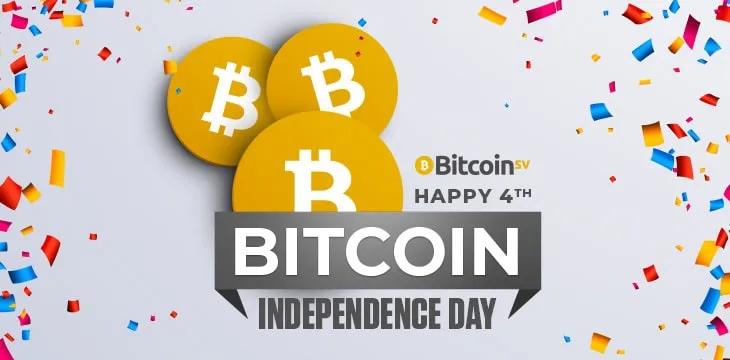|
Getting your Trinity Audio player ready...
|
The story of the BSV/BCH hash war is a brutal chapter in Bitcoin, and it laid the groundwork for much of what has transpired since, but that story has been told a few times. Let’s take a retrospective look after a brief review of the history!
In 2018, BCH was barely 14 months out of the years-long Bitcoin civil war that resulted in the splitting of BTC and BCH. Factions had coalesced into camps around the Bitcoin ABC team and the Bitcoin SV team, and tempers were running hot.
On Team ABC, there was a desire to reorder transactions into numeral order to allegedly simplify the presumptions that went into validating transactions in blocks. This was called “CTOR” by the developers. There was also some energy behind adding in the Avalanche protocol atop BCH in order to achieve a pre-consensus, discussion of burning coins to create an alt coin called “Wormhole Cash” and lastly, the addition of OP_datasigverify to the script library. Most of these ideas never came to fruition, but the debate around an 8% developer fund ultimately led to another BCH civil war a year later wherein a new currency called “eCash” was created, and it was determined that CTOR didn’t add any efficiency to BCH either.
On the BSV side, people wanted to pursue a roadmap of removing block size from the consensus rules and put a roadmap in play that would restore the original Bitcoin stack. With these divergent ideas, CoinGeek Mining (those were the days, huh?), BMG, Mempool and other SV supporting nodes brought in a phenomenal amount of hash power to render an honest signal that SV nodes wanted to support growth of the BCH ecosystem.
For a blast from the past, check out a video I made about it back when it was happening, and I was a fundamental analyst for “Crypto Traders Pro”:
Four years later, BCH’s average block size is still under 1MB, the most talented BCH developers have left the project to create eCash, and Roger Ver has retired from the ecosystem completely. eCash has even fewer transactions on chain, and zero brand recognition.
BSV has also had its own in-fighting in the last four years while developers have left to create things like NOVO and Radiant, but there have also been some major technical breakthroughs. From restoring Bitcoin in the Genesis upgrade to filling up blocks up to 4GB with millions of micropayments and tokens, BSV has proven lots of things that were allegedly impossible to do with the Bitcoin protocol.
But there’s still a part of me that wonders what could have been if the developers from Bitcoin Unlimited, Bitcoin Verde, BCHN, BCHD and Bitcoin ABC were still working alongside the BSV teams on software. Wouldn’t it have been better for Antpool, ViaBTC and the others to also be mining Certihash, Twetch and CryptoFights transactions? Maybe. It might have been a less bumpy road fighting against the forces of Blockstream and their ilk, but instead, we have fractured irreparably—which is likely what the BTC provocateurs wanted in the first place.
Alas, we are where we are, scars and all, four years after everyone thought we were just going to wither away and die with a whimper.
But we are here, we have been widely vindicated in our claims of fraud and Ponzi schemes across the space, and we build on—very much separate from the “crypto” economy. We persist standing solo as Bitcoin’s last chance to change the world of micropayments and data integrity so that we can be more efficient and freer in a world that keeps getting crazier.
Cheers to the next four years, big blockers!
Watch: Craig Wright presentation at BSV Global Blockchain Convention, Bitcoin as the base layer for other blockchains

 07-08-2025
07-08-2025 





